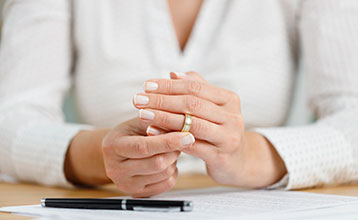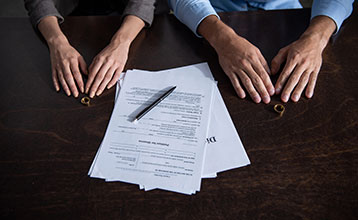What is a husband’s rights in a divorce in Singapore? Is a man at a disadvantage under Singapore divorce law? Unfortunately, there is a lot of misconception that the man is at a disadvantage.
At PKWA Law, we get both men and women seeking divorce advice. As a male divorce lawyer, I have come across many divorced male clients who tell me that the Women’s Charter is biased against them.
There are several reasons why some men believe that divorce laws are against them.
Let’s start with the most obvious. The statute that governs divorce laws is called the “Women’s Charter.” The name suggests that the law is pro-women.
Secondly, there is this impression that the woman will invariably get custody of the children in children custody issues.
Thirdly, although the Women’s Charter allows men to claim maintenance, it is allowed only in limited situations. Thus, for example, the norm in divorce cases is still that the men are the one who has to pay maintenance.
Fourth, there is the impression that the women are always entitled to at least half of the men’s assets in a divorce.
But are these impressions correct? What are the men’s rights in a divorce? Let us explore below.
Men’s Rights in Divorce
What is a husband’s rights in a divorce? Many male clients are pleasantly surprised when I tell them that men divorce laws in Singapore are gender-neutral. So let me explain how the divorce laws of Singapore provide an equal, fair and balanced approach to both sexes.
Understanding the history of the Women’s Charter
The Women’s Charter was enacted way back in 1961. Back then, men could have several wives. Women did not have the right to keep their maiden names. In the historical context, the Women’s Charter was an appropriate name back then as it provided women with the fundamental rights that were not available then. In short, the Women’s Charter was borne out of a need to protect women’s rights. There is nothing anti-male about the Women’s Charter once you understand its historical context.
Fault is not a factor in ancillary matters
Based on my clients’ profile, more women than men initiate divorce because the men are alleged to have behaved unreasonably. Singapore divorce laws do not ‘penalise’ the party who has caused the marriage to break up. When it comes to the division of matrimonial assets or maintenance, the Singapore courts do not base their decision on who was at fault.
Division of matrimonial assets
There is no presumption that matrimonial assets are divided 50-50. Rather, Singapore divorce laws consider both the direct and indirect contributions made to the marriage by the husband and wife.
The Singapore courts have consistently said that their primary objective is to treat both husband and wife fairly. Accordingly, under Singapore law, the court will order the division of matrimonial assets in a “just and equitable manner.” This means that the division of assets will be done in a fair and just manner.
Where the marriage is short, the courts sometimes divide the assets in the manner of parties’ direct contributions to the assets.
Custody of children
In Singapore, the norm is to award “joint custody” of children to both husband and wife. Joint custody means that both parents are co-decision makers in choice of religion, schools and medical care for the children. It is not the practice of the courts to award sole custody to the women.
There is no presumption that women will always win when it comes to “care and control”. Indeed, the Women’s Charter is clear that the courts guiding principle in deciding care and control is “the welfare of the child”. Thus, if the mother is unfit, care and control will go to the father. Naturally, if both father and mother are good parents, but the mother has been the main caregiver, the welfare principle dictates that care and control will go to the mother.
Recently, the Singapore courts have been encouraging parties to have “shared” care and control.
As you can see, there is really no basis that children custody issues are weighted in favour of women.
Maintenance
There is also no presumption that a divorced woman is automatically entitled to maintenance. There is no such presumption. In fact, the Singapore Court of Appeal in ATE v ATD has commented that:
“the power to order maintenance is supplementary to the power to order division of matrimonial assets, and courts regularly take into account each party’s share of the matrimonial assets when assessing the appropriate quantum of maintenance to be ordered.”
The award of maintenance for a former wife considers that the former wife ought to try to regain self-sufficiency. An order of maintenance is not intended to create life-long dependency by the former wife on the former husband.
Men and women are treated equally under Singapore divorce law
Singapore is one of the best places to have a divorce case decided. The court system is fair, and cases are heard very quickly. The fundamental principle is that both men and women are treated equally under Singapore divorce law, and the court’s decision making is based on what is fair and equitable, not on gender.
Fixed, clear & transparent fees
$1,490
No children, property or maintenance
$2,490
With children, property and maintenance


